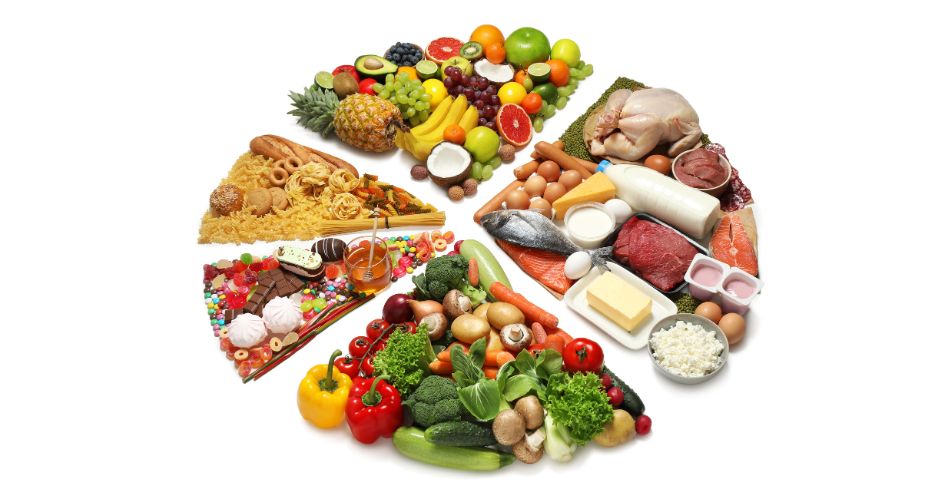What is Balanced Diet & Why is it Important

Maintaining a healthy lifestyle is essential for our overall well-being, and a key component of this is having a balanced diet. But what exactly does it mean to have a balanced diet and why is it so important?
In this blog post, we will delve into the details of what constitutes a balanced diet, the benefits it provides, and how you can easily incorporate it into your daily routine. So, let’s get started on our journey towards a healthier and happier life!
“Eating healthy is not a punishment, but an investment in yourself.” – Unknown
Basics of a Balanced Diet
A balanced diet is one that provides all the necessary nutrients, vitamins, and minerals that our bodies require to function optimally. It includes a variety of different food groups in the right proportions, ensuring we receive adequate energy and nourishment. Here are the key components of a balanced diet:
1. Carbohydrates for Energy
Carbohydrates are the primary source of energy for our bodies. They are found in foods such as grains, fruits, vegetables, and legumes. Including complex carbohydrates like whole grains in our diet provides sustained energy release, while simple carbohydrates like fruits give us quick bursts of energy. However, it’s important to choose carbohydrates wisely and avoid refined sugars and processed foods.
2. Proteins for Growth and Repair
Proteins are crucial for the growth and repair of our body tissues. They are found in foods like meat, poultry, fish, beans, and dairy products. Consuming a variety of protein sources ensures we get all the essential amino acids our bodies need. If you follow a vegetarian or vegan diet, combining different plant-based protein sources like legumes and grains can provide a complete protein profile.

3. Healthy Fats for Vital Functions
Contrary to popular belief, fats are an important part of a balanced diet. They provide essential fatty acids, which are vital for brain function and the absorption of fat-soluble vitamins. Healthy fats can be found in foods like avocados, nuts, seeds, and fatty fish. However, it is important to limit saturated and trans fats, which can increase the risk of heart disease.
4. Vitamins and Minerals for Overall Health
Vitamins and minerals are essential for the proper functioning of our bodies. They support various physiological processes, including immune function, bone health, and energy production. Consuming a wide variety of fruits, vegetables, whole grains, and lean proteins ensures that we receive an array of vitamins and minerals. Additionally, fortified foods and supplements can be used to fill any potential gaps in our diet.
Importance of a Balanced Diet
Now that we understand what a balanced diet consists of, let’s explore why it is so crucial for our health and well-being.
1. Provides Optimal Nutrition
A balanced diet ensures that our bodies receive the right amount of nutrients to function at its best. By including a variety of food groups in our meals, we can cover all the essential vitamins, minerals, and macronutrients our bodies need. This leads to improved energy levels, better digestion, and overall enhanced physical and mental performance.
2. Supports Weight Management
Maintaining a healthy weight is important for preventing various chronic diseases such as diabetes, heart disease, and certain types of cancer. A balanced diet helps in weight management by providing the necessary nutrients while keeping calorie intake under control. It focuses on nutrient-dense foods that are low in calories, reducing the risk of overeating and unnecessary weight gain.

3. Boosts Immune System
A well-balanced diet plays a crucial role in strengthening our immune system. Certain vitamins and minerals, such as vitamin C, vitamin D, zinc, and selenium, have been shown to enhance immune function. By including a variety of immune-boosting foods like citrus fruits, berries, leafy greens, and mushrooms in our diet, we can help our bodies fight off infections and illnesses more effectively.
4. Reduces the Risk of Chronic Diseases
The foods we consume have a significant impact on our risk of developing chronic diseases such as heart disease, diabetes, and hypertension. A balanced diet focuses on nutrient-dense foods that are rich in antioxidants, fiber, and healthy fats. These components help lower inflammation, maintain healthy cholesterol levels, regulate blood sugar levels, and improve overall cardiovascular health.
5. Improves Mental Well-being
What we eat also affects our mental well-being. Research has shown that a balanced diet can have a positive impact on our mood, cognitive function, and overall mental health. Nutrients like omega-3 fatty acids, B vitamins, and magnesium play a vital role in brain health. Incorporating foods like fatty fish, leafy greens, nuts, and whole grains into our diet can support optimal brain function and help prevent mental health disorders.
Conclusion
A balanced diet is not a restrictive or complicated regimen, but rather a holistic approach to nourishing our bodies. By including a variety of food groups in the right proportions, we can provide our bodies with the nutrients it needs to thrive.
From optimal nutrition and weight management to improved immune function and reduced risk of chronic diseases, the benefits of a balanced diet are undeniable. So, let’s challenge ourselves to make healthier food choices and embark on a journey towards a balanced and fulfilling life!
Recommended – 9 Foods You Should Avoid after 30






